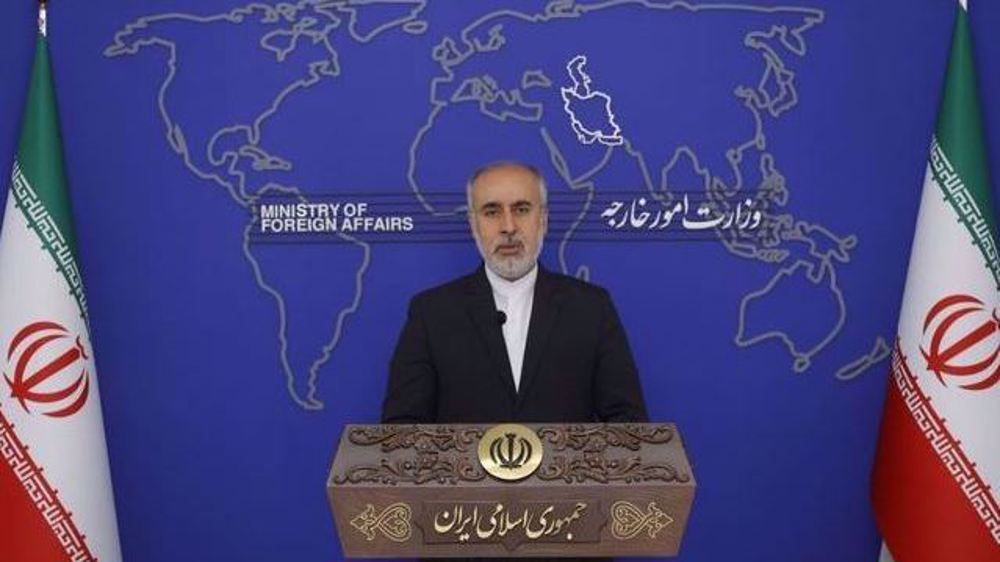Israel stirs media hype as Pakistan comes under pressure to normalize ties
Israeli news outlets are spreading a rumor that a senior advisor to Pakistan’s Prime Minister Imran Khan visited the Israeli-occupied territories last month, despite Islamabad’s repeated rejections of speculation about ties with Tel Aviv.
Citing a source close to the Israeli cabinet, Israel Hayom and other newspapers claimed on Wednesday that the Pakistani aide had met with Israeli officials during his trip to Tel Aviv.
British Airways Flight 165 took Khan’s advisor from London to Ben Gurion Airport on November 20. He flew in business class from Islamabad to London and then to the occupied territories, the reports claimed.
The official was carrying a message from Khan, who the reports said had made a “strategic decision” to open political and diplomatic talks with Israel, they added.
The Pakistani advisor stayed in Israel for a few days and met several high-ranking Israeli officials,
The Jerusalem Post newspaper also covered the news of the alleged visit, but removed it later.
Separately on Wednesday, Noor Dahri, founder and executive director of the UK-based Islamic Theology of Counter Terrorism (ITCT), claimed that Khan’s advisor had travelled to Tel Aviv on his British passport to propose the Pakistan-Israel normalization in return for the regime’s support for Islamabad “to halt down Pakistan’s current cold situation with the Arab countries as well as … in many international issues.”
In an interview with Israel’s i24 News TV channel, Dahri also claimed that the official “was welcomed by the Israeli officials at the airport as the visit was approved by the US.”
He, the researcher added, met the head of Israel’s Mossad spy agency, Yossi Cohen, and delivered a secret message of the Pakistani army chief to him.
The aide later held talks with several political officials and diplomats at the Israeli Foreign Ministry, where he and delivered the message of the Pakistani premier, he noted.
“Pakistan is facing pressure from Arab countries to leave the Turkish bloc and normalize ties with Israel,” Dahri said.
Pakistan has a traditionally close partnership with Saudi Arabia and receives crucial financial assistance and oil supplies from the kingdom.
But, it has in recent years sided with Turkey on a range of regional issues in a move that has undermined Islamabad’s relations with Riyadh and Abu Dhabi.
Some reports say Saudi Crown Prince Mohammed bin Salman has over the past few months refused to meet with Khan. The kingdom also almost completely halted its oil supplies to Pakistan and even sought back the $3 billion in aid money provided as a loan to Islamabad.
In November, the Pakistani prime minister revealed that his country is “under pressure from friendly countries to recognize Israel,” adding, however, “We will not do so without a fair settlement to the Palestinians.”
Many speculated that Khan was actually referring to Saudi Arabia and the UAE.
Asked to name the countries exerting pressure on Pakistan, he replied, “Leave this [question]. There are things we cannot say. We have good relations with them.”
“Let us stand on our own feet in terms of the economy, then you may ask these questions,” he further said, referring to Pakistan’s economic dependence on the oil-rich Persian Gulf states.
Also in November, Pakistan’s Foreign Ministry Spokesman Zahid Hafeez Chaudhri emphasized that Islamabad will not establish relations with the Tel Aviv regime until there is “a viable, independent and contiguous” Palestinian state acceptable to the Palestinians.
Pakistan “steadfastly supports the Palestinian people’s inalienable right to self-determination,” he said in a statement. “For just and lasting peace, it is imperative to have a two-state solution in accordance with the relevant United Nations and OIC (Organization of Islamic Cooperation) resolutions, with the pre-1967 borders, and al-Quds al-Sharif as the capital of a viable, independent and contiguous Palestinian State.”
In recent months, four Arab countries — the UAE, Bahrain, Sudan and Morocco — have established formal diplomatic relations with Israel in deals brokered by the US.
The normalization trend has sparked widespread anger among the Pakistani people, who have strong feelings for the Palestinian cause.
'Hello my enemies': Lebanese journalist on Israeli threats and his resolve to continue
Outrage in France as MP proposes bill to ban criticism of Israel
VIDEO | The strategy of Hezbollah in war
Israeli military withdraws several brigades from southern Lebanon: Report
48-year-old Palestinian man serving 48 life terms completes 22 years in Israeli jails
From MKO to Tondar, how Germany became safe haven for anti-Iran terror groups
Hamas open to any proposal aiming to end Gaza war: Hamdan
Role of private sector in Iran’s thriving space industry















 This makes it easy to access the Press TV website
This makes it easy to access the Press TV website